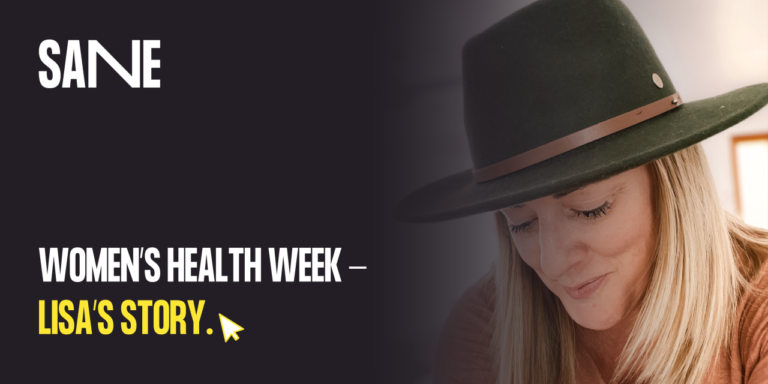As we celebrate Women’s Health Week, Lisa’s journey reminds us of the profound impact a strong support network can have on mental health. Lisa, a mother, supporter and staunch supporter of mental health awareness, has faced enormous challenges yet continues to thrive through the power of connection and community.
Lisa’s story began with a devastating tragedy in her late teens, which profoundly shaped her mental health journey. “I live with anxiety, panic disorder, CPTSD and depression,” she explains. “Certain stages of life, like perinatal and now perimenopausal, have been particularly challenging for me.”
For years, Lisa struggled in silence, self-healing and feeling cut off from the world. “It took me a long time to accept that I was struggling,” she says. “But over time, I realized I couldn’t thrive on my own. I needed support.”
Lisa’s journey to creating a support network was not immediate. “Building a strong network took time,” he reflects. “It was only through my own healing and growth that I was able to appreciate how important a support network is. Sometimes, mental health challenges are for life, and my support network is for life too.”
Her first steps were small but important. “I started by simply letting someone know I was struggling, usually via text,” Lisa shares. “Reaching out was difficult, but it opened the door to more and more light in the darkness.”
For Lisa, having a trusted circle of support was nothing short of life-changing. “The benefits are huge,” he says. “There is a comfort in knowing that I am surrounded by love and unconditional support at all times. I know that no matter how hard things get, I’m never alone.”
This circle of support has provided Lisa with not only emotional comfort but also practical help in navigating her mental health challenges. “I’ve come to realize that connection is one of the most powerful tools for healing,” she notes. “Being there for my loved ones and receiving their support in return gives me a sense of purpose and hope.”
Lisa understands the barriers many women face in seeking help, from stigma to a lack of accessible resources. “When I first started experiencing anxiety and depression, there wasn’t a lot of specialist support,” she recalls. “That’s why I’m so passionate about breaking down these barriers. Everyone deserves access to the help they need to survive and thrive.”
To overcome these obstacles, Lisa turned to education and advocacy. She began sharing her experiences openly, hoping to inspire others to seek help without fear. “The more we share our challenges, the more we break down the stigma,” she emphasizes.
Peer support was instrumental in Lisa’s journey. “Peer support is different from any other form of mental health support,” she explains. “There’s no need to elaborate or try to empathize – it’s just there. It’s incredibly comforting to be surrounded by others who are just getting it.”
Lisa now spends her time supporting others facing similar challenges, knowing first-hand the impact this can have. “It’s not just about getting help,” he adds. “It’s about giving back and creating a community where everyone feels seen and understood.”
For women who are hesitant to seek help, Lisa offers this advice: “Ask for help can be the bravest thing you ever do. Start small — let someone you trust know you’re not well. Join an online peer support group, talk to your doctor, or reach out to a trusted health professional. Every single one of these steps worked for me.”
Lisa has also found immense value in online communities. “When I was pregnant and dealing with stress, I started a blog,” she shares. “It opened up a whole new world of connection. Sharing my journey on social media has been a huge part of my healing, knowing that others feel less alone because of my story.”
Today, Lisa uses digital platforms to continue her advocacy and connect with others facing similar struggles. “Online resources offer comfort and connection, especially when things are tough,” she says.
Lisa has found many resources invaluable throughout her mental health journey. “Having a team of health professionals specializing in women’s mental health was essential,” she notes. “I’ve also done extensive research on reliable online supports and read books to help me understand different phases of life, such as perinatal and perimenopausal periods.”
Lisa’s story is a testament to the power of resilience, courage and connection. As we celebrate Women’s Health Week, her experience reminds us that support networks aren’t just helpful — they’re vital. “Remember,” says Lisa, “you’re not alone, and asking for help can open the door to hope and healing.”
